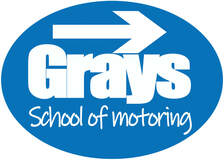If you have a disability, health condition or learning difficulty
When you book your driving test you should say if you have a:
You’ll still have to drive to the same standard to pass, but the examiner can make adjustments for your situation.
You have a disability
You might be allowed more time for your test if you have certain disabilities. It will give the examiner time to talk to you about:
You’re deaf or have a hearing impairment
The examiner will use written notes at the start of the test to explain what will happen. If you lip read, they’ll also look at you so you can lip
read what they’re saying.
The examiner will usually give directions to you as hand signals. These will be explained to you before your test starts.
Using a sign language interpreter
You can take a British Sign Language (BSL) interpreter with you. They must be at least 16 years old.
Your driving instructor can be your interpreter.
You need to arrange your own interpreter and pay any fees that they charge. You can claim the cost back after your test.
You’re pregnant
You can take a driving test at any stage of your pregnancy. However, you must be able and willing to do an emergency stop.
You have reading difficulties
When you do the eyesight check at the start of the driving test, you can write down the number plate instead of reading it out loud.
You have learning difficulties
The examiner will make adjustments for the independent driving part of the test if you have learning difficulties.
They might ask if you’d prefer to follow traffic signs instead of directions from a sat nav.
When you book your driving test you should say if you have a:
- disability
- health condition
- learning difficulty
You’ll still have to drive to the same standard to pass, but the examiner can make adjustments for your situation.
You have a disability
You might be allowed more time for your test if you have certain disabilities. It will give the examiner time to talk to you about:
- your disability
- any adaptations fitted to your car
You’re deaf or have a hearing impairment
The examiner will use written notes at the start of the test to explain what will happen. If you lip read, they’ll also look at you so you can lip
read what they’re saying.
The examiner will usually give directions to you as hand signals. These will be explained to you before your test starts.
Using a sign language interpreter
You can take a British Sign Language (BSL) interpreter with you. They must be at least 16 years old.
Your driving instructor can be your interpreter.
You need to arrange your own interpreter and pay any fees that they charge. You can claim the cost back after your test.
You’re pregnant
You can take a driving test at any stage of your pregnancy. However, you must be able and willing to do an emergency stop.
You have reading difficulties
When you do the eyesight check at the start of the driving test, you can write down the number plate instead of reading it out loud.
You have learning difficulties
The examiner will make adjustments for the independent driving part of the test if you have learning difficulties.
They might ask if you’d prefer to follow traffic signs instead of directions from a sat nav.

